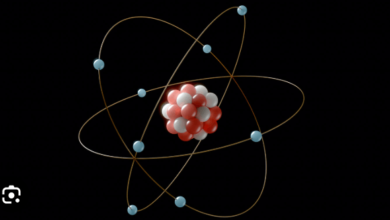Dear Ex Wife, I Want You Back: A Heartfelt Plea for Reconciliation After Divorce

The journey through divorce often leaves individuals grappling with a complex tapestry of emotions, regrets, and unfulfilled connections. In reflecting on the shared experiences that once defined a partnership, one may be compelled to confront the profound longing for reconciliation. This exploration of feelings can reveal insights into the importance of communication, the necessity of accountability, and the potential for rebuilding trust. As we examine the delicate balance between vulnerability and hope, the question arises: can the past serve as a foundation for a renewed relationship, or will it remain an insurmountable barrier?
Understanding the Pain of Divorce
Divorce often feels like the shattering of a once-stable foundation, leaving both parties grappling with profound emotional upheaval.
To navigate this turbulent period, adopting effective coping strategies is essential. Engaging in supportive communities, practicing mindfulness, and seeking professional guidance can facilitate emotional healing.
Embracing this journey may unlock personal growth and resilience, ultimately paving the way for renewed opportunities and self-discovery.
Reflecting on Shared Memories
Amidst the emotional turmoil of separation, reflecting on shared memories can serve as a poignant reminder of the life once built together.
Embracing these nostalgic moments can help us reconnect with our past.
Consider:
- Family vacations
- Celebrated milestones
- Quiet evenings at home
- Inside jokes
These cherished experiences illuminate the bond we once shared, offering hope for potential reconciliation.
Read More Ex Husband Eduardo Tamayo: The Story of Eduardo Tamayo and His Ex-Wife
Recognizing Your Emotions
Navigating the emotional landscape after a divorce can feel like traversing a dense fog, where confusion and pain obscure clarity.
Employing self-reflection techniques and engaging in emotional journaling can illuminate your feelings, helping you to process grief, anger, and longing.
Acknowledging these emotions is crucial; it fosters healing and self-discovery, paving the way for potential reconciliation and renewed understanding.
The Importance of Communication
Effective communication is vital in the journey towards reconciliation after divorce, as it fosters understanding and healing.
By prioritizing open dialogue and employing active listening techniques, both parties can express their emotions clearly and constructively.

This approach not only helps to bridge gaps but also cultivates a shared sense of respect and empathy, paving the way for a more positive relationship moving forward.
Open Dialogue Matters
Open dialogue is crucial in the journey toward reconciliation after divorce, as it fosters understanding and healing between former partners.
To create an environment conducive to open communication, consider the following:
- Encourage open-ended questions.
- Establish emotional safety.
- Share feelings honestly.
- Respect each other’s perspectives.
These steps can pave the way for a more meaningful connection, ultimately guiding you both toward renewed trust and intimacy.
Active Listening Techniques
A significant aspect of fostering effective communication during the reconciliation process is the practice of active listening. This technique not only promotes understanding but also encourages empathetic responses, paving the way for meaningful dialogue.
| Technique | Description | Benefit |
|---|---|---|
| Reflective Listening | Paraphrase what you hear | Confirms understanding |
| Nonverbal Cues | Use eye contact and open posture | Shows engagement and care |
| Clarifying Questions | Ask questions to ensure clarity | Deepens conversation |
Expressing Emotions Clearly
Clear communication of emotions serves as a vital cornerstone in the reconciliation process following a divorce.
To foster emotional expression and vulnerability sharing, consider the following:
- Be Honest: Share your true feelings without fear.
- Listen Actively: Encourage your ex to express her emotions.
- Avoid Blame: Focus on “I” statements to convey personal feelings.
- Create Safe Spaces: Ensure a non-judgmental environment for open dialogue.
Taking Responsibility for Mistakes
Acknowledging our mistakes is a crucial step in the journey toward reconciliation after divorce.
By confronting our flaws, we open the door to personal growth and deeper understanding. This process requires humility and courage, allowing us to transform our past missteps into valuable lessons.
Embracing responsibility not only fosters healing but also paves the way for a more authentic connection in the future.
The Role of Forgiveness
Forgiveness is an essential component of healing after divorce, serving as a powerful catalyst for personal and relational transformation.
To embrace forgiveness, consider the following steps:
- Acknowledge your feelings.
- Forgive yourself for past mistakes.
- Let go of resentment towards your ex.
- Focus on personal growth.
Rebuilding Trust and Connection
Rebuilding trust and connection after divorce is a delicate process that requires open and honest communication between both parties.
By reflecting on shared experiences and memories, individuals can foster a sense of familiarity and understanding that may have been lost.
Additionally, embracing emotional vulnerability can create a safe space for both partners to express their feelings and rebuild their relationship gradually.
Open and Honest Communication
While navigating the complexities of post-divorce interactions, open and honest communication emerges as a fundamental pillar for rebuilding trust and connection.
To foster this environment, consider the following:
- Prioritize emotional safety.
- Encourage effective feedback.
- Actively listen without judgment.
- Share feelings openly.
Shared Experiences and Memories
Navigating the aftermath of a divorce often leaves individuals reflecting on the shared experiences and memories that once defined their relationship. Nostalgic moments and cherished milestones can serve as a foundation for rebuilding trust and connection. By acknowledging these significant memories, couples may find pathways to reconciliation, allowing them to rediscover the bond that once brought them joy.
| Nostalgic Moments | Cherished Milestones |
|---|---|
| First date | Wedding anniversary |
| Vacation adventures | Birth of a child |
| Holiday celebrations | Home purchase |
| Milestone birthdays | Family traditions |
| Inside jokes | Shared hobbies |
Rebuilding Emotional Vulnerability
Often, emotional vulnerability serves as a crucial element in the journey toward rebuilding trust and connection after a divorce.
Engaging in vulnerability exercises can foster emotional intimacy.
Read More Denyce Lawton Ex Husband: Who Is Denyce Lawton’s Ex-Husband?
Consider the following steps:
- Share your feelings openly.
- Practice active listening.
- Reflect on past experiences together.
- Establish safe spaces for dialogue.
These actions can create a foundation for renewed connection and understanding.

Approaching the Conversation
When it comes to initiating a conversation about reconciliation after divorce, many individuals find themselves grappling with a mix of emotions and uncertainties.
To approach this delicate discussion effectively, consider timing considerations that respect both parties’ emotional states.
Equally important is setting boundaries to ensure a safe environment for open dialogue, fostering an atmosphere where both individuals can express their feelings and aspirations freely.
Preparing for Different Outcomes
Engaging in a conversation about reconciliation inevitably brings with it the possibility of various outcomes, each of which can significantly impact both individuals involved.
To foster emotional preparedness, consider these future possibilities:
- Reconciliation and renewed commitment
- A mutual decision to remain friends
- Acknowledgment of irreconcilable differences
- Space for personal growth and healing
Approaching these outcomes with an open heart can facilitate a healthier dialogue.
Conclusion
In the aftermath of divorce, the path toward reconciliation remains fraught with uncertainty. Yet, the potential for rediscovery and renewal lingers in the air, waiting to be explored. Each shared memory serves as a beacon, illuminating the possibility of rebuilding what was lost. Through open communication, accountability, and the willingness to embrace vulnerability, the door to a renewed connection may slowly creak open. Will the courage to step through transform the past into a hopeful future? Only time will reveal the answer.





